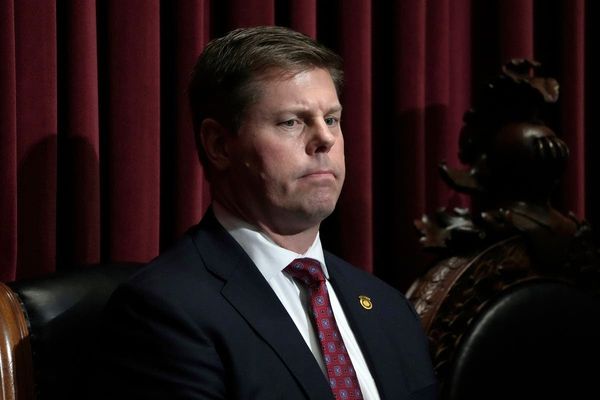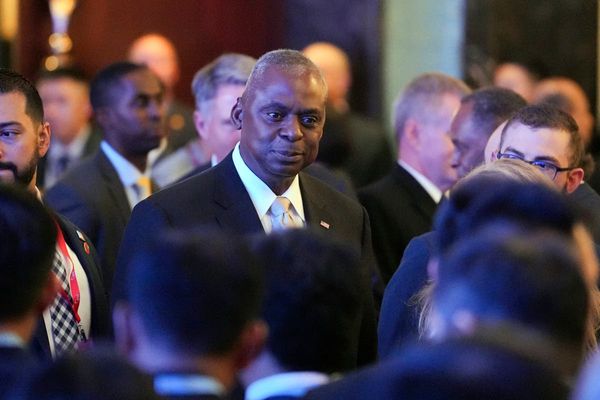
Fiona Harvey claims that the deal reached at Cop28 in Dubai amounts to a “de facto phase-out of fossil fuels” (After 30 years of waiting, Cop28 deal addresses the elephant in the room, 13 December). But did it?
The Dubai deal speaks of a transition “away from fossil fuels in energy systems”. Sounds good. But “in energy systems”? What does this phrase mean? It is not interpreted in the agreement, and thus left ambiguous.
The most plausible interpretation is that it means power (ie power stations) and heat (eg combined heat and power plants, or home heating). So “energy systems” means the generation of electricity and of heating only. Cop28 did not call on countries to transition away from fossil fuels, let alone to phase them out. It only called on countries to transition away from fossil fuels in the generation of electricity and heat for heating purposes. Cop28 did not call on countries to effect such a transition in heavy industry (eg chemicals or steel production, or plastics), or in the food system.
The deal leaves the highway to climate hell wide open. Citizens are going to have to mobilise as never before over the coming years if that trajectory is to shift.
Prof Rupert Read
Co-director, Climate Majority Project
• George Monbiot (Cop28 is a farce rigged to fail, but there are other ways we can try to save the planet, 9 December) is right that it’s time to break the climate problem down into manageable pieces sorted by pollutants (CO2, methane), sinks (forests, permafrost, peatlands), or sectors (cooling, steel, aluminium). Tailor-made treaties, fair to both rich and poor countries, can then learn how to solve each piece, with results plugged into the Paris agreement for accounting.
A blueprint exists: the Montreal protocol ozone treaty. Besides putting the ozone layer on track for recovery, its mandatory measures have avoided as much warming as CO2 is causing. Together with its 2016 Kigali amendment phasing down hydrofluorocarbons, it will avoid 2.5C of warming by the end of the century.
The protocol shows a mandatory sectoral agreement can succeed. The next target should be methane. Cutting it can avoid nearly 0.3C by the 2040s, more in a shorter time that any other strategy. This can start by locking in the promises made by the 50 companies at Cop28 to reduce their methane emissions to near zero by 2030.
Such a treaty could be led by the US, EU and China. The stage is set to move forward quickly with the strategy that Monbiot proposes. No need to wait for another disappointing Cop.
Durwood Zaelke
President, Institute for Governance & Sustainable Development
Maxime Beaugrand
Director, IGSD Paris office
• Oliver Milman stresses the dangers of relying on “magical” technologies (‘Magical’ tech innovations a distraction from real solutions, climate experts warn, 10 December). But since humankind’s access to cheap, abundant energy has allowed us to threaten many planetary boundaries, simply substituting one form of energy for another won’t fix our predicament.
The root cause of climate change lies in ecological overshoot and the behaviours and systems that enable it. We must fix these. We now burn more fossil fuels than ever. And many interventions are resource-intensive, slow and founded in a flawed business-as-usual mindset.
The marketing, media and entertainment industries have manipulated human behaviours towards the wasteful hyperconsumption of natural resources. But as time is so tight, we propose the same methods be employed to reverse our acquisitiveness, to operate within the Earth’s limits and avoid ecological collapse.
Economic and political power structures and vested interests form the interlocking layers of our crises. One of our grand challenges is to recast such forces to reverse the damage done. We call for a concerted effort to identify ways to best attain a rapid global embrace of new norms for consumption, reproduction and waste.
Prof Christopher J Rhodes
Fresh-lands Environmental Actions, Reading, Berkshire
Prof Phoebe Barnard
Mount Vernon, Washington, US
• Do you have a photograph you’d like to share with Guardian readers? If so, please click here to upload it. A selection will be published in our Readers’ best photographs galleries and in the print edition on Saturdays.







